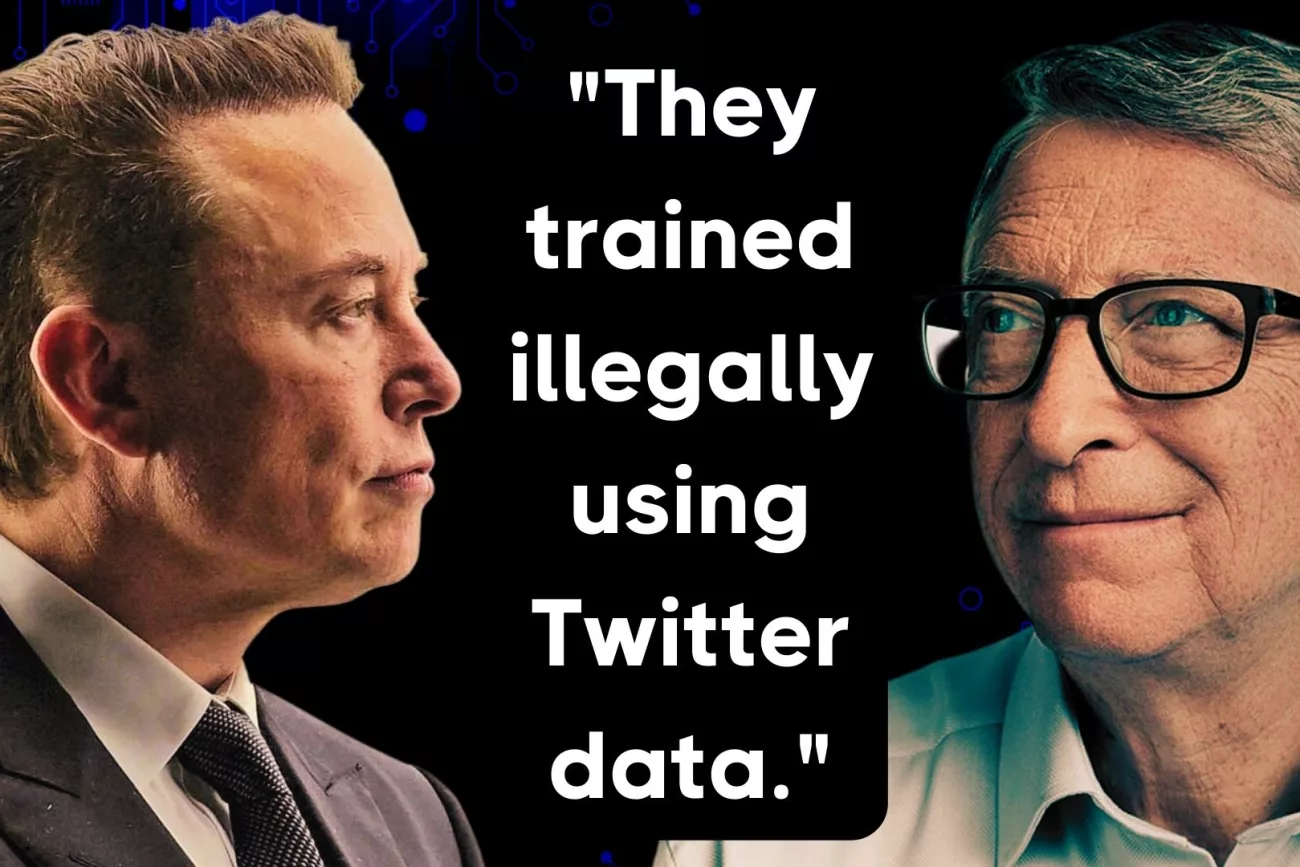
Key Points:
- Embracing AI education can significantly elevate a young attorney’s career.
- Collaboration across teams and experts is crucial to understanding AI’s full spectrum in law. Top universities and platforms offer invaluable (often free) courses on AI.
- Staying updated with AI advancements ensures a future-proof career in the legal sector.
The AI Explosion in Law: Dive In or Miss Out? 🚀
In the glamorous world of legal warfare, there’s a new kind of magic — AI. As a young lawyer, you’ve either embraced the AI beast or are still skeptical about letting it help you in your legal battles. 🤖
Why Should Lawyers Care About AI? 🧐
Well, it’s not just about asking Alexa for the weather or letting Siri handle your calls anymore. The very foundation of law is evolving, making AI an essential tool for any legal prodigy aiming for the stars. If Shakespeare were alive, he’d probably rewrite “All’s well that ends well” to “All’s well that AI helps well.”
Where’s the Beef? 🍖
While everyone’s raving about the “must-knows” of AI for lawyers, not many spill the beans on the “how-tos.” Let’s face it — we’re dealing with technology that’s quicker than your favorite barista’s coffee brew! With AI models sprouting like mushrooms after rain, can that once-a-year CLE class cut it? 🍄
Embrace the AI Odyssey – Here’s How! 🌌
Understand the AI tools your firm uses. Be curious! 🧐
Consider LegalSifter, a popular contract review tool that uses AI. On the surface, it might just seem like a quick document checker. But dive deeper, and you’ll find intricate natural language processing algorithms at work, combing through dense legal jargon. A lawyer in-the-know can leverage this tool’s full capabilities, accelerating the review process by 50% or more!
Data Bite: According to a 2020 study by Gartner, companies that understand their AI tools can boost team productivity by up to 40%!
Unravel the ethical dilemmas and biases lurking behind those algorithms. 🕵️♂️
In 2018, a major scandal erupted when it was discovered that an AI tool, designed to assist judges in determining bail amounts, showed bias against certain ethnic groups. This mishap was a wake-up call for the legal industry, illustrating that AI tools, if unchecked, can perpetuate systemic prejudices.
Data Bite: MIT research revealed that certain facial-recognition algorithms had error rates of up to 34.7% for darker-skinned females, compared to 0.8% for lighter-skinned males. This stark disparity highlights the urgent need for lawyers to question and understand the underpinnings of the AI they employ.
Establish company guidelines on AI that everyone understands. 📜
Renowned law firm Baker McKenzie set a global precedent by creating an AI Ethics Committee. They crafted guidelines not just on how to use AI, but also on its procurement and development, ensuring every attorney, irrespective of their tech-savviness, had a clear roadmap to AI usage.
Data Bite: A PwC report suggests that companies with clear AI guidelines reduce operational risks by 25%, safeguarding both reputation and revenue.
Collaborate across teams. IT, HR, Marketing — they’re all part of the AI dance. 🎭
When implementing AI-driven document analysis tools, IT ensures data security, HR assists in training staff, while Marketing communicates the firm’s innovative approach to clients, setting the firm apart in a competitive market.
Data Bite: According to Deloitte’s Legal Operations report, firms that engaged cross-functional teams in AI implementation saw a 35% increase in both staff efficiency and client satisfaction compared to those that didn’t.
Get the lowdown from AI vendors. Ensure they’re not just selling snake oil. 🐍🚫
A law firm considering an AI litigation prediction tool would want proof. How did it perform in past cases? Can the vendor provide a side-by-side analysis of its predictions vs. actual outcomes in past litigation scenarios? It’s not just about flashy presentations; it’s about proven performance.
Data Bite: A recent survey by LegalTech News found that 48% of firms felt they were oversold on AI capabilities, leading to buyer’s remorse. Dive deep into vendor claims, asking for verifiable results and case studies.
Engage with experts. Data scientists and AI specialists can be your best buddies when navigating this complex maze. 🧪🔍
AI-powered eDiscovery tools are revolutionizing how firms manage vast troves of data. But these tools aren’t “one-size-fits-all.” Engaging a data scientist can help customize algorithms for a firm’s specific needs, ensuring maximum efficiency.
Data Bite: According to a report from Stanford Law School, firms that engaged AI specialists in eDiscovery reduced their data processing times by a staggering 70%.
Seek and ye shall find — workshops, conferences, seminars, you name it! 🌐
Every year, the International Conference on Artificial Intelligence and Law showcases breakthroughs in AI-driven legal tech, from predictive analytics in litigation to advanced contract review tools. Attending such events isn’t just about collecting participation certificates; it’s about firsthand interactions with AI’s frontier in the legal sphere.
Data Bite: A survey from The National Law Journal showed that legal professionals who regularly attended AI-related conferences had a 45% greater adoption rate of advanced AI tools compared to those who didn’t.
Devour knowledge from reputable sources. MIT Tech Review and Harvard Business Review should be your new BFFs. 📚
In a recent article from MIT Tech Review, an in-depth discussion on how AI algorithms can unintentionally perpetuate societal biases offered crucial insights. For a lawyer, understanding such nuances isn’t just beneficial—it’s essential to ensure that the AI tools they deploy are equitable and just.
Data Bite: According to a study by LegalTech Innovations, attorneys who regularly read tech-focused publications like MIT Tech Review or Harvard Business Review are 32% more adept at integrating AI into their practices efficiently.
Join AI advocacy groups and get a front-row seat to the future of law and ethics. 🛡️
Organizations like the Center for AI and Digital Policy actively push for responsible AI development and usage. Being a part of such groups doesn’t just look good on a resume—it ensures lawyers have a voice in shaping the ethical boundaries of AI in law.
Data Bite: Research from the Law Society Gazette found that 68% of lawyers who are members of AI ethics or advocacy groups felt more prepared to address AI challenges and ethical dilemmas in their profession.
Embrace the vast universe of online courses (many of which are free!): 🌌
Jenny, a junior attorney, felt overwhelmed by the AI tools her firm was beginning to use. Instead of panicking, she spent her weekends diving into free courses. Within a month, she was not just comfortable with AI in legal proceedings but had become her team’s go-to for AI questions.
Data Bite: A recent report from LegalTech Journal highlighted that 73% of legal professionals who undertook online AI courses felt more confident and efficient in their roles, compared to their peers who refrained from such courses.
Google’s smorgasbord on everything AI, from Generative AI to Machine Learning. 🍽️
Mark, a legal consultant, wanted to better advise his clients on AI integration. He dived into Google’s courses on Generative AI and Machine Learning. Armed with this knowledge, he successfully advised a client on deploying a Generative AI tool for automating legal document creation, saving the firm hours of manual drafting.
Data Bite: According to The AI Legal Digest, attorneys who have taken Google’s AI courses have reported a 40% increase in their efficiency in AI-related legal tasks, compared to those who hadn’t.
Coursera, edX, and top universities – they’re goldmines of AI courses waiting for your pickaxe. ⛏️
Sophia, an ambitious paralegal, enrolled in Stanford University’s AI course on Coursera. Her newfound expertise allowed her to identify potential AI biases in eDiscovery tools her firm used. Recognizing her prowess, the firm sponsored her further studies, pushing her legal career miles ahead.
Data Bite: A Lawyers Weekly survey found that 56% of legal professionals who took AI courses from top universities (via platforms like Coursera or edX) were more likely to receive promotions or job advancements within a year.
Challenge the Status Quo 🌪
Sure, the world of AI might seem like a whirlwind, but it’s a storm worth chasing. As a lawyer, you’re not just learning the law; you’re shaping its future. So, why just ride the wave when you can command the tide? 🌊
Engage, Discuss & Stay Ahead! 🚀
Where do you see the future of law with AI?
How do you tackle the rapid pace of tech advancements?
Any hidden gems (courses, books, webinars) you’d like to share?
🚨Exclusive Offer:🚨
Hungry for more? 🍔 Dive deeper with our newsletter – the ultimate source for AI legal insights! Sign up NOW!
Google is offering FREE courses in following areas:
A.I | IoT | Machine Learning | Data Science | Computer Science
- Introduction to Generative AI
- Introduction to Large Language Models
- Introduction to Responsible AI
- Introduction to Image Generation
- Encoder-Decoder Architecture
- Attention Mechanism
- Transformer Models and BERT Model
- Create Image Captioning Models
- Introduction to Generative AI Studio
- Fundamentals of digital marketing
- Build apps with Flutter
- Google Cloud Computing Foundations: Cloud Computing Fundamentals
- Baseline: Data, ML, AI
- Google Cloud Essentials
- Google IT Automation with Python
- Google Professional Workspace Administrator
- Master the Google tools you use at work with online training
- What are you trying to do with AI today?
Share this post
Frequently Asked Questions (FAQs)
Q: Why should a young attorney learn about AI?
A: AI is revolutionizing the legal field. By understanding AI, young attorneys can enhance their efficiency, offer innovative solutions, and stay ahead in their careers.
Q: Are all AI courses expensive?
A: No! Platforms like Google, Coursera, and edX offer many free courses on AI, ensuring that quality education is accessible to everyone.
Q: How does AI affect the legal sector specifically?
A: From eDiscovery tools to automated legal document creation and bias detection, AI is reshaping how legal professionals operate, offering opportunities for innovation and efficiency.
Q: Do I need a tech background to understand AI?
A: Not at all! Many courses are designed for beginners, with legal professionals in mind. The key is curiosity and a willingness to learn.
Q: How can online AI courses advance my legal career?
A: By harnessing AI knowledge, you can stand out in your firm, offer innovative solutions, and position yourself as a forward-thinking legal expert.














